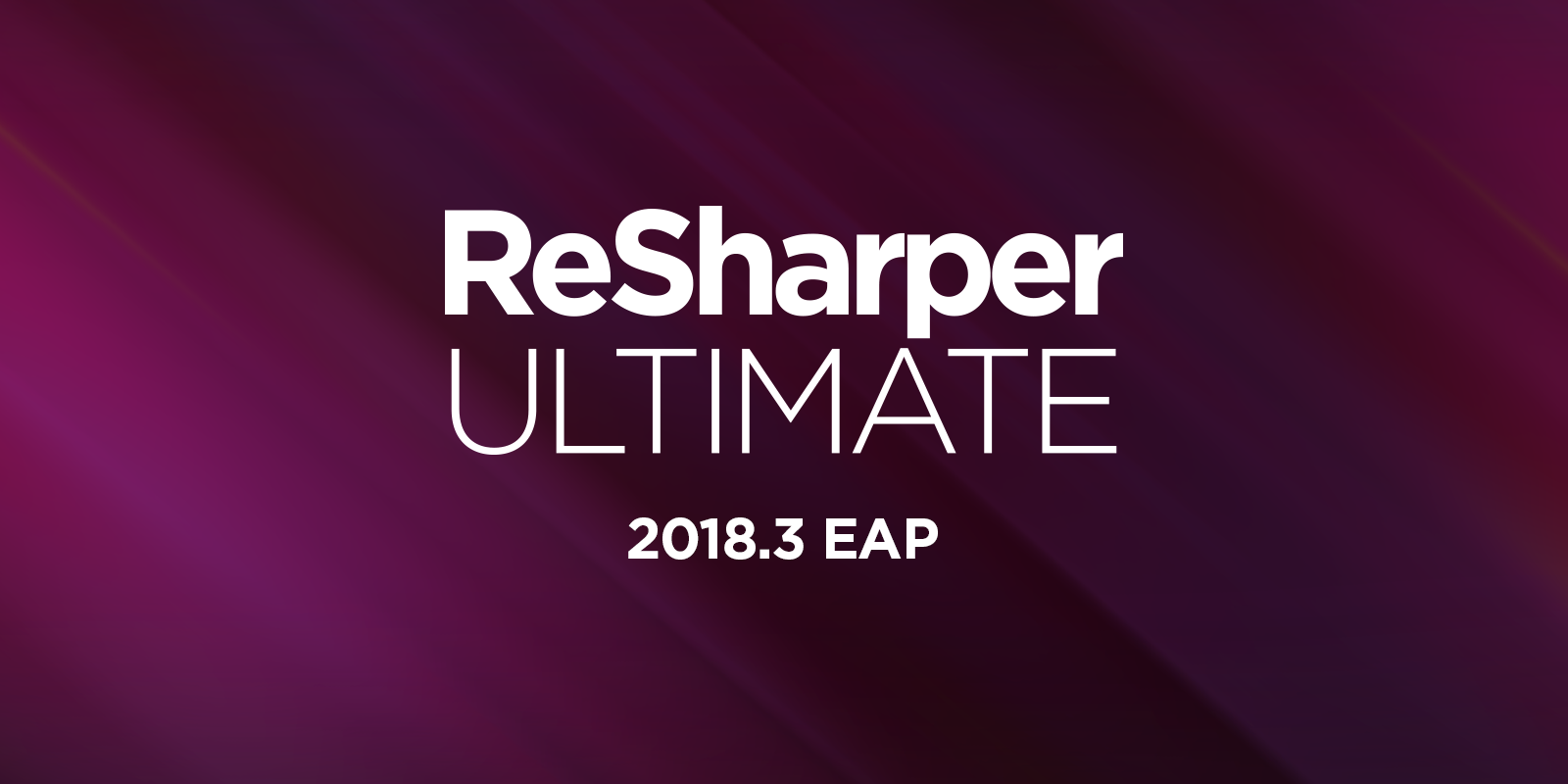.NET Tools
Essential productivity kit for .NET and game developers
How-To's

ReSharper Ultimate 2018.3 starts Early Access Program
We’ve started a new Early Access Program cycle for ReSharper Ultimate – please welcome ReSharper Ultimate 2018.3 EAP.
Let me highlight the big changes in the ReSharper 2018.3 EAP1 build:
- We’ve implemented the Introduce parameter refactoring for local functions.
- Lots of new inspections, quick-fixes, and context actions have been added to C# code analysis for different cases:
- Add an explicit tuple component name.
- Split `||`-expressions in switch case guard clauses into separate switch cases.
- Detect format strings that were incorrectly used as interpolated strings.
- Use string interpolation, convert LINQ to XML/JSON, and format items highlighting for the
string.Concatmethod. - Initialize members to create and fill the object initializer.
- An improved context action “Deconstruct variable” is available on usages and on parameters, and supports deep nested deconstructions.
- Show Inspection Help is now available for inspections in the Inspection Results and Error in Solution windows if the inspection has a corresponding WebHelp article.
- The Go To Action popup allows looking for Options pages.
- You can select which font style ReSharper Editor Adornments should inherit: Visual Studio IntelliSense or Text Editor.
- We’ve made ReSharper more FIPS-compliant by stopping the use of the md5 hash algorithm and eliminating all its previous uses in the codebase.
- The whole list of fixes is available here.
Other tools from ReSharper Ultimate 2018.3 family have received an update as well:
- ReSharper C++ 2018.3 EAP introduces predefined naming schemes for common C++ code standards. It also makes several usability improvements to Parameter Info, and adds the Specify template arguments explicitly context action for use with C++17 class template argument deduction. Finally, it includes several fixes that improve performance during solution opening (in particular for projects that use Unreal Engine).
- dotTrace 2018.3 EAP gets a new subfilter in the Timeline Viewer, which allows you to analyze how the allocated memory is distributed between the objects of a certain type.
- dotMemory 2018.3 EAP gets a new condition on the profiling controller for taking a snapshot: Get a snapshot if total memory usage exceeds X MB. Also, the view showing objects queued for finalization (the result of the Finalizable objects inspection) allows opening these objects and analyzing them in other dotMemory views.
- dotPeek 2018.3 EAP supports decompiling local functions and pattern matching and makes it possible to copy the fully qualified name (FQN) of a symbol to the clipboard.
Prev post Unit testing memory leaks using dotMemory UnitRider 2018.3 Early Access Program kicks off Next post
Subscribe to a monthly digest curated from the .NET Tools blog:










